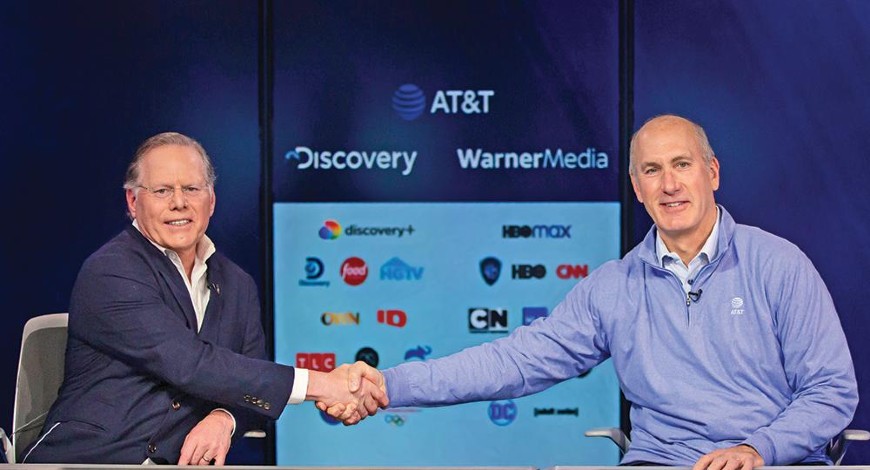Trends
Media, telecom deals value hits record over past 12 months, PwC finds

Big video gaming transactions, such as Microsoft’s $68.7 billion acquisition of Activision Blizzard and Elon Musk’s $44 billion takeover of Twitter, boosted M&A activity in the media and telecommunications industries for the 12 months through May 15 to a record $469 billion in deal value, accounting and consulting services firm PwC said in a Thursday report.
The period also included the May 17, 2021 announcement of the $43 billion Discovery-WarnerMedia megamerger and Amazon’s $8.45 billion deal for MGM, which was unveiled soon after that. There have been 1,014 deals over the 12-month period, a 28 percent increase over the same period a year earlier, PwC noted.
The first half of 2022 was “marked by the continued trajectory of strong M&A activity in the media and telecommunications sector, following the rebound in the second half of 2020,” the firm highlighted. “As we head into the second half of 2022, deal momentum continues at a vigorous pace, despite increasing interest rates, the stock market decline in the tech sector and a potential recession.”
While “economic and geopolitical uncertainty may somewhat slow the recent torrid pace of deals, there’s good reason to remain optimistic,” the PwC team argued. “A significant amount of cash is in the system to get deals done. Further, businesses are under pressure to transform; the fastest way to do that is through M&A.”
That said, the firm did note that “deals activity has recently slowed among some of the major media companies, following a peak driven by content and technology acquisitions to fuel expansion of streaming services.”
PwC also highlighted “several emerging trends shaping M&A activity in the sector, including investment in music streaming, increasing demand for sports and the continued shift to digital advertising.”
In music, artists such as Justin Timberlake, Shakira, Neil Young, Bob Dylan and Bruce Springsteen have sold all or part of their catalogs, plus the firm noted “renewed acquisitions interest in independent music labels and music publishers.” It expects music to “remain one of the more active sectors for M&A in the near term.”
In sports, “the combination of streaming, ad sales opportunities, sports gambling and other tailwinds have lifted team and league values to unprecedented heights,” PwC explained, noting docuseries and other forays into original content as new revenue opportunities for them. Add in that private equity have recently been allowed to buy into teams, and the company predicts “continuing growth in the foreseeable future” for deals.
Private equity deals continue to be responsible for increasing levels of deal activity, accounting for 42 percent of deals over the past 12 months, compared with 24 percent of all deals in 2018, the report mentioned. “Private equity deals represented $194 billion of announced deal value, about three-quarters of which was concentrated in the internet and software space,” according to PwC. “Despite the challenges big tech is facing in the stock market, small to mid-size tech deals continue to dominate private deal volumes.”
Bart Spiegel, U.S. entertainment and media deals leader at PwC, said that media and telecom M&A was “still deeply rooted in the fundamental theses that have driven the sector for several years: building brands around owned IP and creating ecosystems to directly market to consumers.”
Asked about key drivers for media and telecom M&A activity, Spiegel told The Hollywood Reporter: “It’s usually the mega-deals that drive deal value, and it’s the the small deals (sometimes with no disclosed deal value) that drive volumes. This has been a consistent theme since I started working with this a decade ago. And the volumes are always in the internet and information sub-sector, while the video games, TV and film traditionally have the high value deals.”
What has caused the recent slowdown in major media deals? “In general, I believe major media companies are currently focused on getting their house in order,” Spiegel said. “Many have recently launched streaming platforms, which require significant content investment, are experimenting with AVOD based offerings and ensuring their underlying technology and user interface are attractive to their customers all while competing in a finite market. This takes time, energy and financial support to ensure objectives are met. Compound that with the state of the market, and I believe the major media companies will be focused on internal initiatives in the immediate future.”
That being said, he is “very opportunistic” about M&A in the sense that “significant IP becoming available in the market will always be attractive and is aligned with the long-term objectives of these companies.”
Has the high-inflation environment started to affect dealmaking directly? “We’ve yet to see evidence of deals specifically looking to tamper the effects of a high-inflationary environment on the run-rate operating results of a business,” Spiegel told THR. “That being said, I do think you have very sophisticated finance personnel sitting in the C-suite who will start to look for these attributes as they explore potential M&A in a tight market. Given current stock prices and increasing cost of debt, those companies with a healthy balance sheet will be best poised to execute on M&A in the near-term.” The Hollywood Reporter





